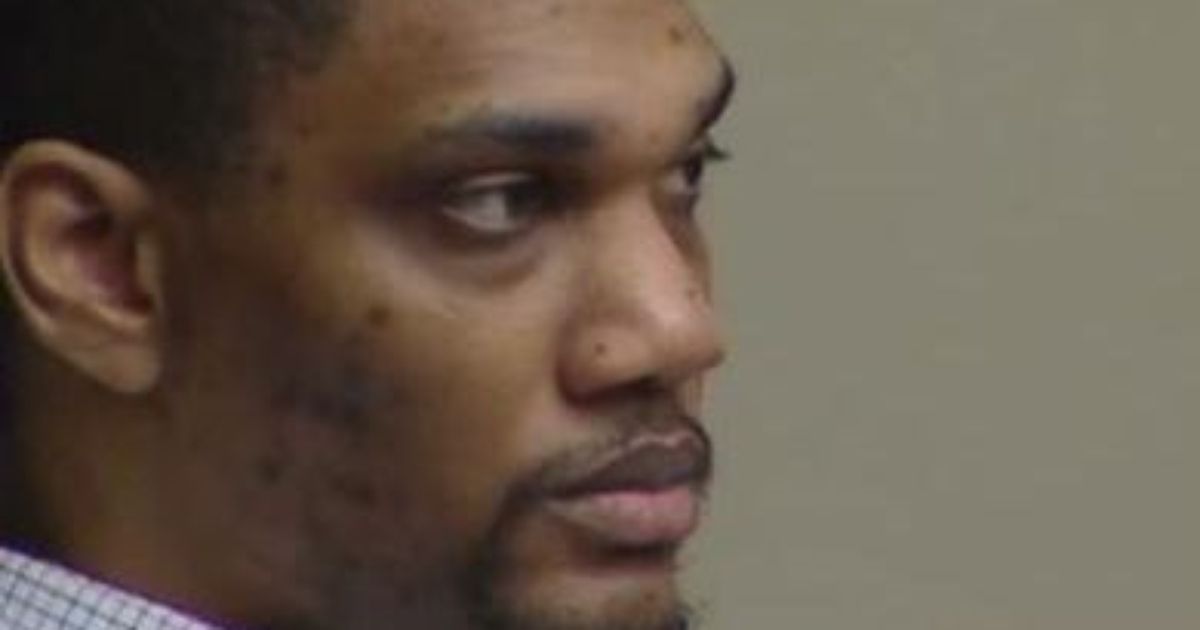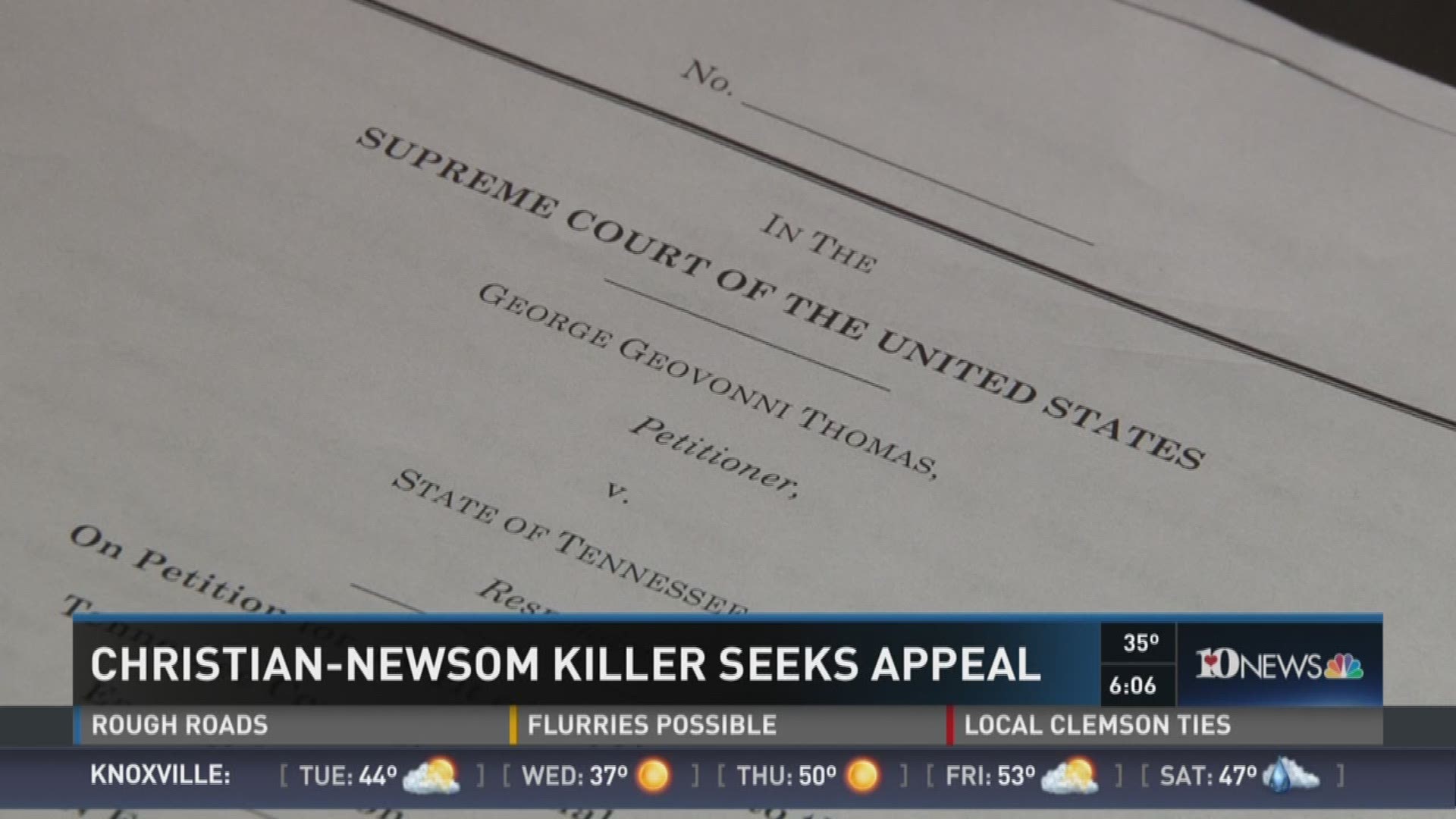(KNOXVILLE) One of the men convicted in the gruesome deaths of Channon Christian and Christopher Newsom wants his conviction reviewed by the U.S. Supreme Court.
Christian and Newsom were carjacked in January 2007, and taken to the Knoxville rental home of Lemaricus Davidson.
Newsom was almost immediately raped and murdered, and his body was set afire near railroad tracks. Christian was tortured and raped for hours before suffocating in a trash can.
Vanessa Coleman, Letalvis Cobbins and George Thomas were also convicted in the crimes. Thomas was convicted under a law that holds accomplices responsible for facilitating their partners’ crimes.
For the Christian and Newsom families - nine years after the killings - the pain is still there.
“For him to be tortured, for both of them to be tortured the way they were, it just breaks my heart," said Mary Newsom, Chris's mother. "It just really tears me apart and breaks my heart. It’s with us every single day. We can’t forget it.”

Now, George Thomas wants the Supreme Court to review his case. The high court takes only a fraction of the petitions submitted across the nation.
Through his attorney, Stephen Ross Johnson, Thomas asks if the statute under which he was convicted is "unconstitutionally vague," and says it violated his rights to due process under the 14th Amendment.
Johnson claims his client was homeless at the time, and only staying in the Chipman Street home where most of the crimes took place. He was not a willing participant, Johnson argues.
He does admit that Thomas saw the couple being brought into the home, but says he removed himself to a back room to smoke and listen to the radio.
No DNA was presented in court linking Thomas to the crimes.
“The doctrine offends due process because it permits convictions – like Thomas’s – absent what would otherwise be sufficient evidence of the statutory mental state,” Johnson wrote.
To legal experts, the Supreme Court appeal is a logical step, but a long shot. The high court only takes about 10 percent of cases submitted to it, said attorney Dennis Francis.
"It's a big burden, a big obstacle to even get them to hear a case," Francis said.
Johnson claims the lower courts are split on the application of this law. For the law to be correctly applied, Johnson contends, the state needed to prove Thomas’s intent was to assist in the crimes of his co-defendants, and that his presence or inaction is not enough.
Francis said if the court accepts the case, it would come down to the small details of Thomas's behavior.
"Was he passive, which I think is the allegation in the petition, in that he took no affirmative steps to participate in the rape, robbery, murder and kidnapping," said Francis.
Still, the Newsoms believe the law is specific enough.
“To me, he’s guilty," said Mary Newsom. "He was there with all the rest of them. He knows exactly what went on. They all know what went on.”
Thomas is serving two consecutive life sentences, plus 25 years.
The Supreme Court now decides if it will review the case.

